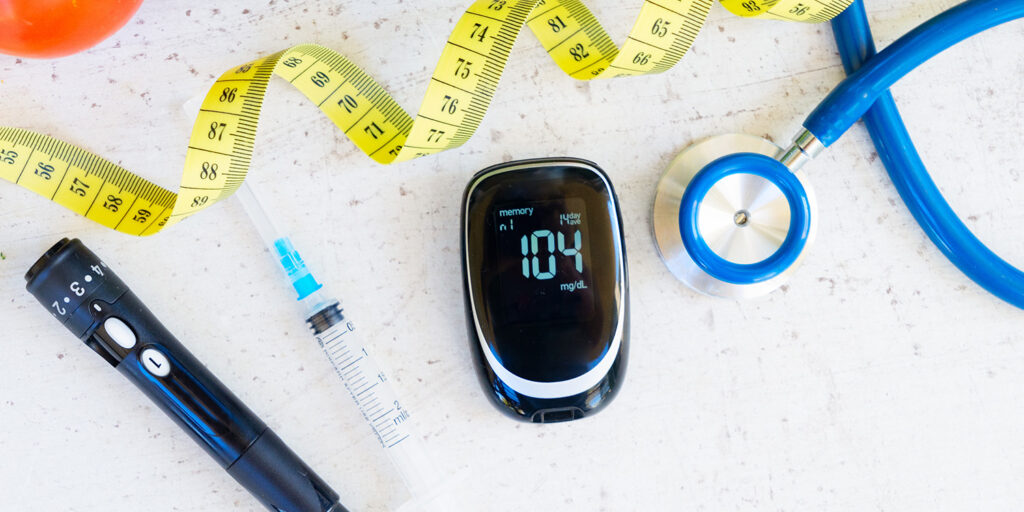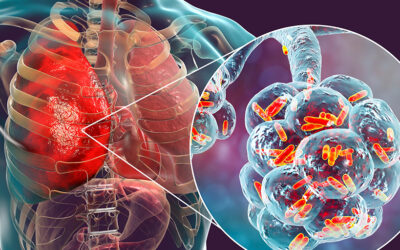Nutrition for Diabetes: What to Eat and What to Avoid

Diabetes is one of the fastest-growing health concerns in India, affecting millions of people across all age groups. Much of this rise is linked to poor lifestyle, dietary habits, and increasing obesity. Living with diabetes can feel overwhelming at times, but one key area that can make a real difference is nutrition. With the right diet, many complications linked to diabetes can be prevented or delayed, helping patients lead healthier lives. In this article, we will discuss why nutrition matters, the best foods to include, what to avoid, and practical tips to create a sustainable diabetes-friendly diet plan. Read on.
Table of Contents
ToggleWhy Nutrition Matters in Diabetes Management
Food choices play a vital role in how the body processes glucose. Every meal directly affects blood sugar levels, making nutrition one of the most powerful tools in managing diabetes. A healthy diet supports the body’s natural ability to use insulin effectively, reduces sudden spikes in glucose, and prevents weight gain that can worsen the condition.
Beyond sugar control, the right nutrition lowers the risk of long-term complications such as heart disease, kidney damage, and nerve-related problems. It also helps manage associated concerns such as obesity, high blood pressure, and cholesterol.
For many patients, small but consistent dietary adjustments, such as choosing low glycaemic index foods, increasing dietary fibre, and balancing meals, make a significant difference in their overall health.
What is a Diabetes Diet Plan?
A diabetes diet plan is not a rigid or restrictive menu, but a structured approach to eating that helps maintain steady blood sugar levels. It focuses on balancing carbohydrates, proteins, and fats in the right proportions while including foods that are rich in fibre, vitamins, and minerals.
Such a plan emphasises whole grains, vegetables, lean proteins, and healthy fats while limiting refined sugars and processed foods. The goal is to provide consistent energy, prevent blood sugar spikes,also prevents hypoglycaemia and support overall health.
Diet plans may vary depending on the type of diabetes. For example, a type 2 diabetes diet helps improve insulin sensitivity, a gestational diabetes diet supports both mother and baby, and a prediabetes diet focuses on early lifestyle modifications to prevent disease progression.
Best Foods to Eat for Diabetes
Choosing the right foods can make diabetes management easier and help maintain steady blood sugar levels. A diabetes-friendly diet should focus on balance, variety, and nutrient-rich ingredients such as.
- Whole grains: Brown rice, red rice,oats, ragi,pearl millet and quinoa provide complex carbohydrates that release energy slowly and prevent glucose spikes.
- Leafy greens and non-starchy vegetables: Spinach, broccoli, beans and bottle gourd are low in calories but rich in fibre, vitamins, and minerals.
- Lean proteins: Fish, skinless chicken, eggs, cottage cheese, tofu, pulses, and legumes help with satiety and muscle strength without raising blood sugar.
- Fruits: Apples, guavas, pears, and berries have a low glycaemic index (GI) and are rich in antioxidants and fibre. All fruits can be taken in limited proportion,s which is 250-300grams per day.
- Healthy fats: Nuts, seeds, sesame oil, mustard, ground nut and flaxseed oil support heart health and provide sustained energy. Consume not more than 3tsp of oil per person per day.
Including these foods in daily meals not only supports sugar control but also improves overall nutrition and reduces the risk of long-term complications.
Foods to Avoid in Diabetes
Certain foods can cause sudden spikes in blood sugar and worsen insulin resistance, making it important for people with diabetes to limit or avoid them. Foods to avoid/limit in diabetes include:
- Refined/simple Carbohydrates: breads, pastries, biscuits,rusks, and sugary drinks quickly raise glucose levels.
- Processed foods and fried snacks: Chips, pakoras, and instant noodles are high in unhealthy fats and low in nutrition.
- Fruit juices: eating fruits is better than having them in juice form as juice is devoid of fiber and reaches the bloodstream quickly to cause a sugar spike.
- Red and processed meats: Sausages, bacon, and high-fat cuts of meat may raise cholesterol and heart disease risk.
- Full-fat dairy products: Cream, butter, and full-cream milk contain saturated fats that may worsen cardiovascular complications.
Avoiding or minimising these foods helps maintain stable blood sugar levels and supports long-term health.
How to Create a Balanced Diet for Diabetes
Creating a balanced diet for diabetes involves choosing foods that keep blood sugar steady while providing all the nutrients needed for daily energy and long-term health. The focus should be on moderation, variety, and portion control. When planning meals, the following principles can help in building a balanced diabetes-friendly diet:
- Portion control: Divide meals into smaller, frequent portions to avoid sudden spikes or drops in blood sugar.Follow a healthy eating plate method.
- Include dietary fibre: Add whole grains, legumes, and fresh vegetables and salads to slow down glucose absorption and support digestion.
- Balance food groups: Pair carbohydrates with fiber and protein along with healthy fats, for example, roti with dal and vegetables, to ensure steady energy release.
- Stay hydrated: Adequate water intake helps regulate metabolism and prevents dehydration-related glucose fluctuations.
- Culturally appropriate diet: A wholesome plate with roti, dal, sabzi, salad, and curd works well for diabetes management. Avoid eating cereal grains in mid-time meals or snack time meals. Have a fruit, nuts and seeds, curd, buttermilk in the mid-meals or short breaks.
By following these principles, patients can create meals that are satisfying, nutritionally balanced, and supportive of long-term diabetes control.
Common Myths About Diabetes Nutrition
Many misconceptions about food and diabetes can make managing the condition more challenging. Debunking these myths helps patients make informed choices and lead a healthier, more balanced life..
Myth: Diabetics cannot eat fruits.
Truth: All fruits can be taken; they are safe and beneficial when eaten in moderation. No juices
Myth: Sugar-free products are always safe.
Truth: Many sugar-free items still contain refined flour, unhealthy fats, or artificial additives that can affect blood sugar and overall health.
Myth: Skipping meals helps control sugar.
Truth: Skipping meals can cause sudden drops and spikes in blood glucose, increasing the risk of complications. Eating balanced meals at regular intervals is safer.
How Many Carbs Should You Have Per Day?
Carbohydrates are the main source of energy for the body, but in diabetes, managing the type and amount of carbs is essential to avoid sudden sugar spikes. The recommended intake usually ranges between 45-60 grams of carbohydrates per meal, 45 per cent of the total caloric intake advised, though this may vary depending on age, weight, activity level, and medication.
Choosing complex carbohydrates, such as whole wheat, brown rice, oats, and millets, over refined options helps maintain steady blood glucose. Pairing carbs with protein or fibre further slows absorption, ensuring better control.
When it comes to an Indian diet, replacing refined white rice with smaller portions of brown rice or opting for multigrain rotis instead of refined flour chapatis can significantly improve sugar management.
How Nutrition Helps Prevent Prediabetes and Type 2 Diabetes
Prediabetes is an early warning stage where blood sugar levels are higher than normal but not yet in the diabetic range. With timely changes in diet and lifestyle, this stage can often be reversed, helping to prevent the onset of type 2 diabetes.
Nutrition is central to this process. Choosing low glycaemic index foods, increasing dietary fibre, reducing refined sugars, and maintaining a healthy weight all improve insulin sensitivity. When combined with regular physical activity, these adjustments significantly lower the risk of diabetes.
For those already living with type 2 diabetes, following a structured diet plan not only improves daily sugar control but also delays complications such as heart disease, kidney problems, and nerve damage.
When Should You See a Doctor for a Diabetes Diet?
While many people with diabetes try to manage their diet on their own, there are times when professional guidance becomes essential. Consulting an endocrinologist or a dietician in Dehradun can help create a safe and effective plan tailored to individual needs, such as.
- Uncontrolled sugar levels: If blood glucose remains high despite dietary efforts.
- Diet alongside medication: When adjusting food habits while taking insulin or oral medicines.
- Weight management issues: Difficulty in achieving or maintaining a healthy weight.
- Special conditions: Gestational diabetes, prediabetes, or other health concerns such as obesityand hypertension.
Read more- Childhood Obesity: Causes, Early Signs, and the Role of Paediatric Endocrinology
Why Choose Graphic Era Hospital for Diabetes and Nutrition Care?
Managing diabetes requires more than just medication – it needs expert guidance on nutrition, lifestyle, and long-term monitoring. At Graphic Era Hospital, patients benefit from a holistic approach that combines medical expertise with personalised dietary support. We offer:
Expert Care
The hospital’s team of experienced endocrinologists and qualified dieticians work together to design safe and effective nutrition plans. Each patient receives individualised attention, with adjustments made according to age, lifestyle, medication, and health goals.
Advanced Medical Facilities
With modern diagnostic tools for blood sugar, cholesterol, kidney function, and metabolic health, the hospital ensures accurate evaluation before creating diet and treatment strategies. These facilities help track progress and prevent complications.
Patient-Centred Support
The hospital focuses on empowering patients with knowledge and guidance, making it easier to adopt healthy eating habits. Counselling sessions, follow-ups, and continuous monitoring ensure that every patient feels supported in their journey towards better sugar control and overall wellbeing.
Conclusion
Diabetes can feel challenging to manage, but the right nutrition makes a powerful difference in controlling blood sugar and protecting long-term health. While medicines and regular monitoring are important, a balanced diet remains the foundation of diabetes management. If you are looking for expert guidance on diabetes and nutrition care, the specialists at Graphic Era Hospital are here to help. To consult an endocrinologist or nutrition expert at Graphic Era Hospital, simply call 1800-889-7351, and leave rest to us.
Frequently Asked Questions
What is the best diet for diabetes?
A balanced diet with whole grains, leafy vegetables, lean proteins, and healthy fats is recommended. Portion control and regular meal timing are also important.
Can diabetics eat rice or roti daily?
Yes, but in moderation. Opt for brown rice or multigrain rotis, paired with vegetables and proteins, to prevent sugar spikes.
Which fruits are safe for diabetics?
Low glycaemic index fruits such as guava, apple, papaya, and berries are generally safe when eaten in controlled portions.
What foods should diabetics avoid completely?
Refined carbs, sugary drinks, fried snacks, processed meats, and high-sugar fruits like mangoes or grapes should be limited or avoided.
Are sugar-free foods good for diabetes?
Not always. Many sugar-free products contain refined flour or unhealthy fats. It’s better to focus on natural, balanced meals.
Can nutrition alone control diabetes without medicine?
In early or prediabetes stages, nutrition and lifestyle changes may help. However, many patients need a combination of diet, exercise, and medication.
What is the best Indian diet for diabetes?
An Indian diabetes-friendly diet may include multigrain roti, dal, sabzi, salad, curd, and fruits such as guava or apple.
Are dairy products safe for diabetes patients?
Low-fat dairy options like toned milk, paneer, and curd are safe in moderation, but full-fat versions should be avoided.
Can diabetics eat sweets occasionally?
Occasional small portions may be allowed if balanced with medication and activity, but regular sweet intake should be avoided.
Where can I find a diabetes diet specialist near me in Dehradun?
Graphic Era Hospital in Dehradun has experienced endocrinologists and dieticians who provide personalised diabetes diet plans. To book a consultation, call 1800-889-7351.
What is the role of glycaemic index in a diabetes diet?
Low-GI foods help prevent sudden blood sugar spikes and are essential for steady glucose control.
What snacks are best for diabetes patients?
Nuts, roasted chana, sprouts, boiled eggs, and vegetable salads are healthy snack options that do not raise blood sugar quickly.
By Specialities
- Bariatric Surgery
- Cancer Care
- Cardiology
- Dental
- Dermatology
- Diabetes & Endocrinology
- Endocrinology and Diabetes
- ENT (Ear Nose Throat)
- Eye Care
- Gastroenterology
- Haematology
- Health Awareness
- Health Care
- Health Tips
- Hematology
- Hepatology
- Internal Medicine
- Mental Health and Behavioural Sciences
- Metabolic
- Neonatology
- Nephrology
- Neurology
- Nutrition & Dietetics
- Obstetrics & Gynaecology
- Oncology
- Ophthalmology
- Orthopaedics
- Paediatric
- Physiotherapy & Rehabilitation
- Plastic and Reconstructive Surgery
- Psychology
- Pulmonology
- Rheumatology
- Spine
- Urology
Recent Posts
- A Complete Guide to Blood Clots in the Brain
- Heart Attack: Symptoms and Treatment
- World Obesity Day 2026: Understanding, Preventing, and Managing Obesity
- Bacterial and Viral Pneumonia: Causes, Symptoms, and Treatment Options
- World Hearing Day 2026: Empower Yourself to Protect and Improve Your Hearing
Need expert medical advice?
Share your details and our healthcare specialists will reach out to assist you.
By proceeding, you acknowledge and agree to our Privacy Policy, Terms of Use, and Disclaimer.



















